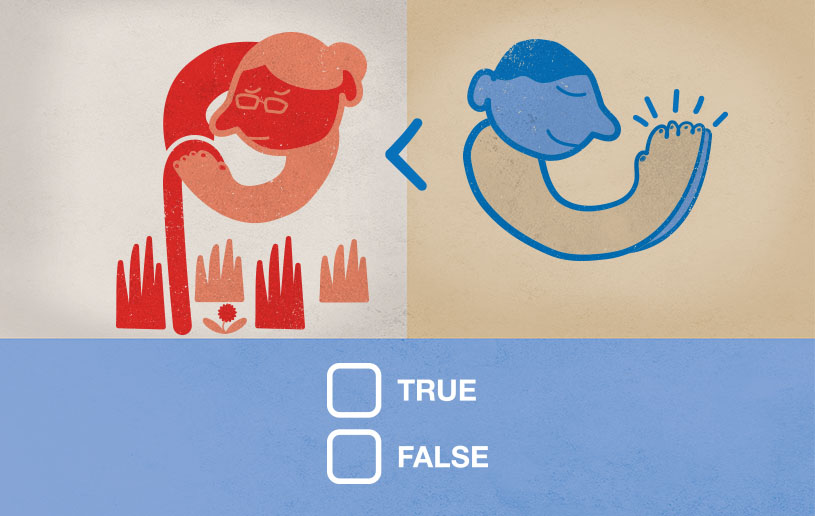
Take this simple true or false quiz.
Ready?
- Prayer is more important than mowing your widowed grandmother's lawn
- Sharing the Gospel is more important than taking a meal to a new mother and father just home from the hospital
- Doing “sacred” work, such as preaching or being a missionary, is more important than “secular” work, such as accounting or being a lawyer
If you answered “true” to any of these questions, you've been deceived by the ancient heresy of Gnosticism.
The Gnostics (pronounced näs-tik) were some of the earliest heretics to infiltrate the Church with their poisonous doctrines, arising shortly after the Gospel began penetrating the Roman world near the Mediterranean Sea in the first century. The word Gnosticism comes from the Greek word gnosis, meaning “knowledge.” The Gnostics believed there was a mysterious or secret knowledge reserved for those with true understanding, leading to the salvation of the soul. Spiritual salvation was of pre-eminence to the Gnostics because they thought the human spirit was naturally good and was entrapped or imprisoned in the body, which was naturally evil or merely an illusion. Their goal, therefore, was to free the spirit from its embodied prison, and the only key to unlock the prison doors was the mysterious knowledge they possessed.
This radical distinction between our bodies and our spirits led Gnostics to twist the Early Church's understanding of who Jesus was and is. The Gnostics saw Jesus as a messenger bringing the special knowledge of salvation to humanity's imprisoned soul. They believed that when Jesus came to earth He didn't possess a body like our own; instead, the Gnostics taught that He only seemed to have a physical body (known as the heresy of “docetism,” from the Greek verb “to seem”). This was a denial of the Christian doctrine of the incarnation—the belief that Jesus was both fully God and fully human. But the Gnostics went even further: they also denied the bodily resurrection of Jesus, an event Paul argued must have taken place or our faith is in vain (1 Corinthians 15:12–14, 16–17, 42–44).
The implications of these Gnostic beliefs had profound effects on the Church. Not only did the Gnostics successfully deceive some people in the Church into becoming Gnostic themselves, but their misleading ideas about how Christians should live crept into some Church teaching. In practice, some Christians came to the false conclusion that they must literally beat their bodies into submission and live such ascetic lives that they never allowed themselves the enjoyment of bodily pleasures. Others went to the opposite extreme and permitted their physical passions to run whatever course they chose. Those in this second group justified their libertine lifestyles with the erroneous notion that their evil bodies were destined for destruction anyway, while their spirits, which they believed were good, would remain unharmed.
Unfortunately, traces of Gnostic thought continue to permeate the thinking of many well-meaning Christians today. For example, some Christians think that only two things will last into eternity: God's Word and the souls of men and women—an emphasis on the spiritual and an exclusion of the physical. But this is wrong. The Bible explicitly teaches that not only will these two last into eternity but so will our bodies, in a glorified state (John 5:28–29; 1 Corinthians 15:42–44).
The implication that the spirit is more important than the body is the reason why an answer of “true” to any question in our quiz is incorrect. James warns us that “pure and undefiled religion in the sight of our God and Father is this: to visit orphans and widows in their distress, and to keep oneself unstained by the world” (James 1:27 NASB1995). However, don't make the mistake that believing the converse is true either, that the body is more important than the spirit. Both have equal importance in the eyes of God. Paul said, “Whether...you eat or drink or whatever you do [including praying and sharing the gospel], do all to the glory of God” (1 Corinthians 10:31). So let's glorify God by correcting any warped ideas that our minds—the spiritual part of us—are more important than matter—the physical part of us.
Taken from Derrick G. Jeter, "Dealing with Deceivers," Lesson Eight, in Living Right in a Wrong World Learn Online. Copyright © 2009 Charles R. Swindoll, Inc. All rights reserved worldwide.

